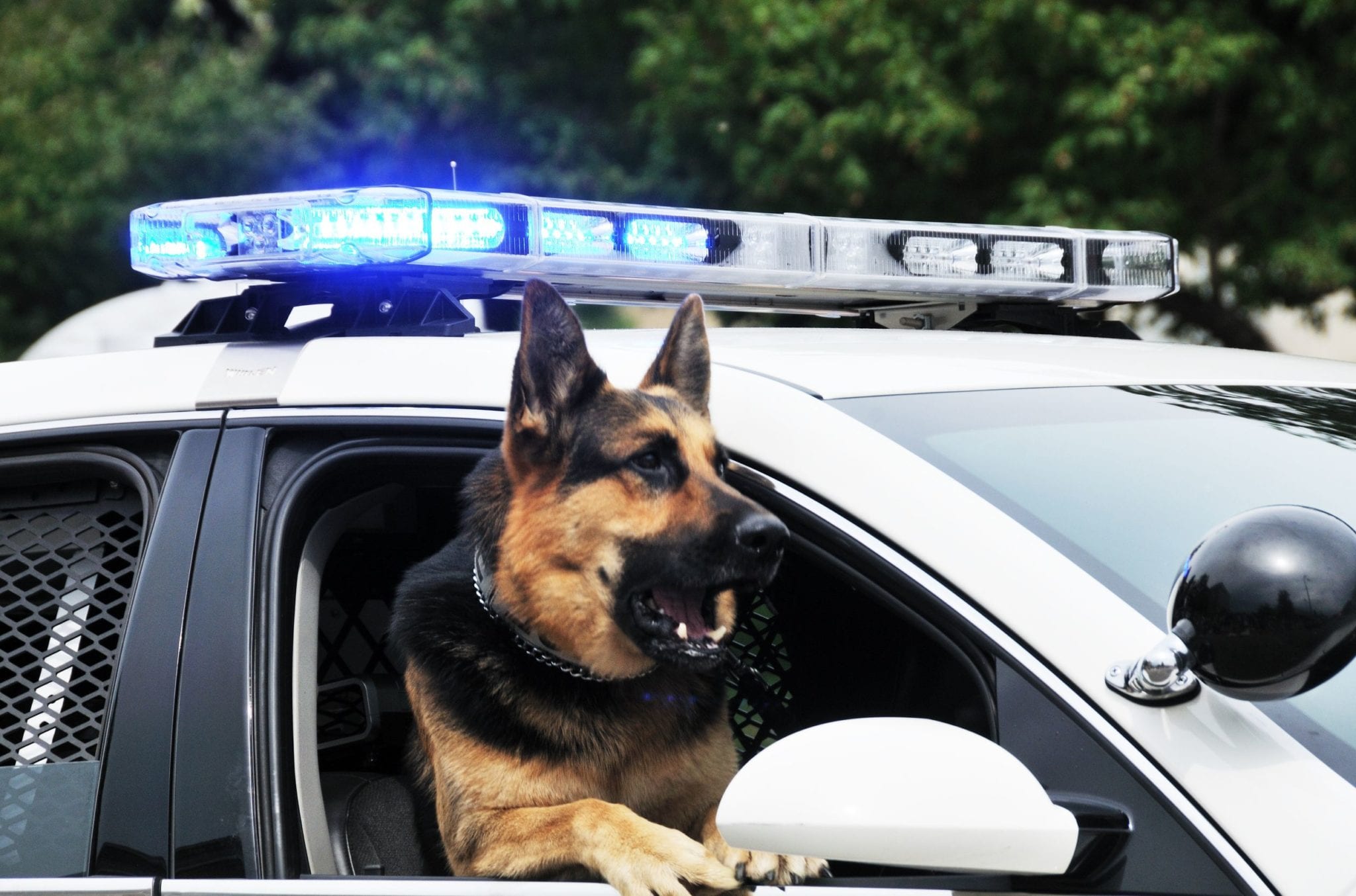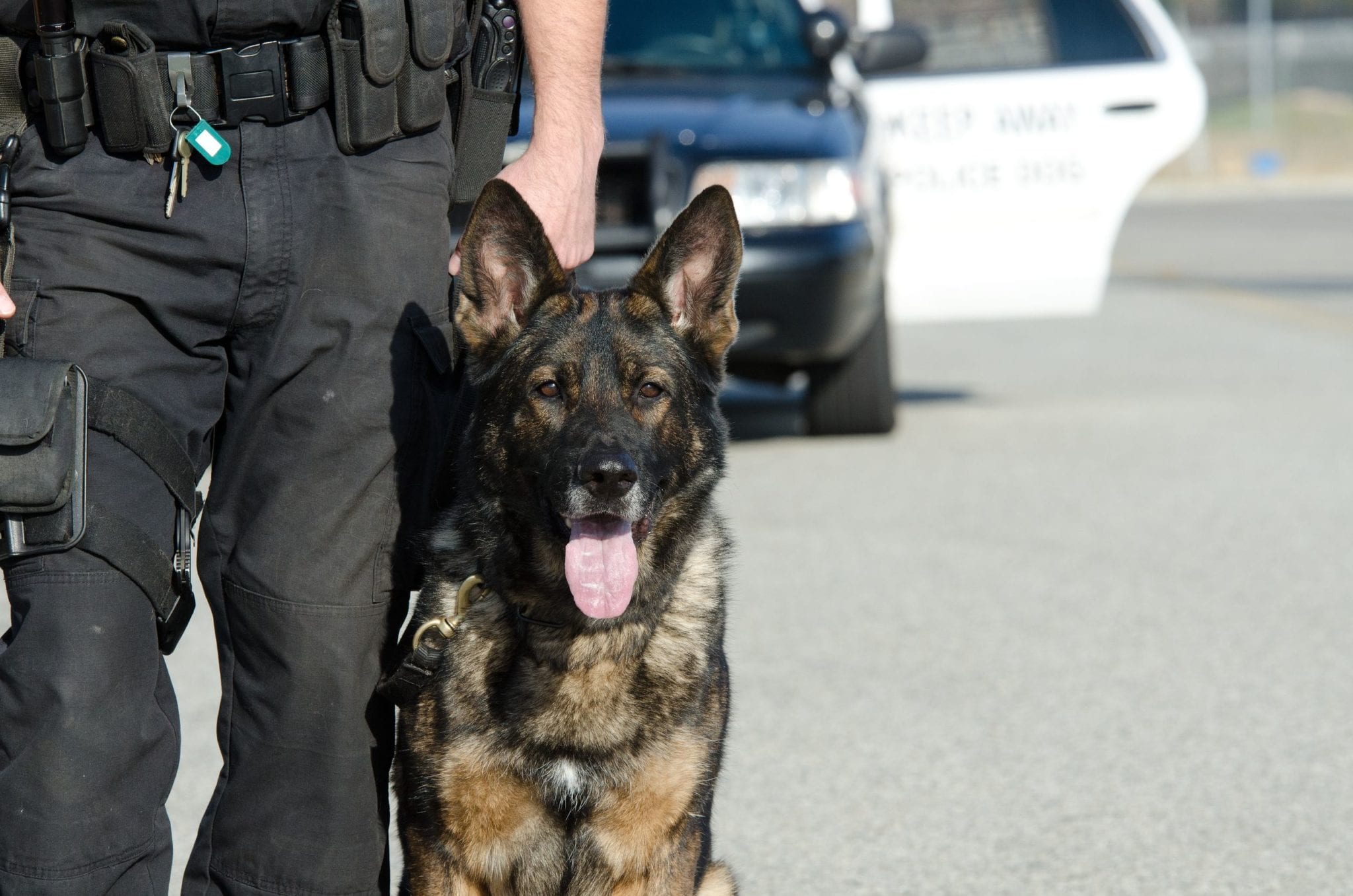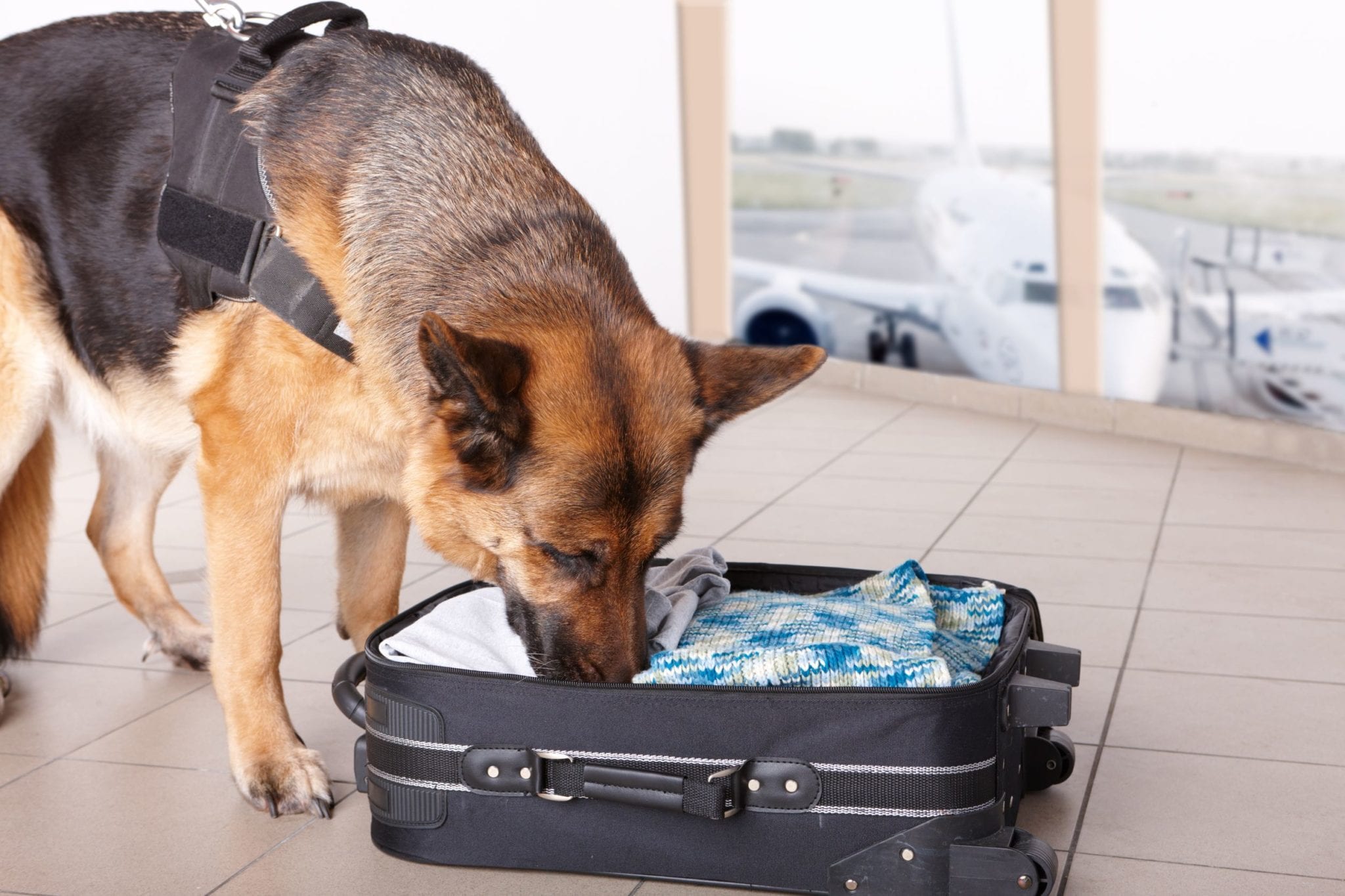
Drug addiction in the United States is being called an epidemic, and a number of states – including our own – are trying to fight that epidemic any way they can.
To that end, the Minnesota State Patrol is adding three new K-9s to sniff out drugs on potential suspects. The new dogs – one German shorthair and two Belgian Malinois –have just finished their 10-week training program and will now join their handlers for another five weeks of training to detect drugs.
The addition of these three dogs brings the total number of Minnesota State Patrol trained K-9s to 15 across the state. The teams of K-9s and their handlers help Minnesota law enforcement officials with everything from traffic stops to building searches if drugs are believed to be stashed within. There is also one K-9 and handler team trained to sniff for explosives.
Why Add More Drug Dogs in Minnesota?

Lt. Gov. Tina Smith said, “With drug overdoses on the rise in Minnesota, these dogs will help get drugs, including methamphetamine and heroin, off our streets and out of our communities…In Minnesota, we understand that providing law enforcement with the tools they need is only part of a successful strategy to address substance abuse. We also are committed to expanding treatment and recovery efforts, which will help us turn the tide on this public health crisis.”
Through June of this year, the Minnesota Department of Public Safety says that five school searches and 353 vehicle searches has turned up:
- 116 pounds of methamphetamine;
- 5 pounds of cocaine;
- 5 pounds of heroin; and
- 1,150 pounds of marijuana.
Although the efforts to address drug addiction in our state are noble, it’s important to know your rights if you’re charged with a drug offense because of a drug-sniffing dog, so let’s explore that now.
Drug Dogs and Your Fourth Amendment Rights
The Fourth Amendment of the United States Constitution states that it is a citizen’s right “to be secure in their persons, houses, papers, and effects, against unreasonable searches and seizures.”
So does using a drug-sniffing dog violate your Fourth Amendment rights if you’re pulled over for a traffic violation?
According to the United States Supreme Court in their decision of Rodriguez v. United States, the answer is no.
In 2012, a Nebraska police officer pulled over an SUV driver for driving on the shoulder of the road. The officer conducted the traffic stop normally, getting the driver’s license, registration, and proof of insurance. The officer ran a records check on Rodriguez, the driver, and returned to ask for identification from the passenger.
When the officer returned to the car for a third time, he gave the men their documents back and issued a warning ticket for the shoulder driving. After issuing the warning, the officer then asked if he could walk his K-9, Floyd, around the car. Rodriguez said no.
The officer then asked Rodriguez to step out of the vehicle and wait for another officer to arrive. When the second officer arrived, the dog walked around the car twice. On the second trip, Floyd signaled that there were drugs in the car. Upon searching the vehicle, the officers discovered a bag of methamphetamine.
At this point the car had been stopped for almost 30 minutes and nearly 8 minutes had passed since the warning ticket had already been issued.
In a 6-3 vote, the Supreme Court said that police dog sniffing during lawful traffic stops is legal under the Fourth Amendment, but if a law enforcement officer doesn’t have reasonable suspicion, he can’t prolong a traffic stop in order to conduct a dog sniff.
The Supreme Court sent Rodriguez’s case back down to a lower court. There, they determined that the officer did not have reasonable suspicion for drugs or any other criminal activity, so the search and seizure was illegal and the drugs weren’t admissible in court.
A Skilled Minnesota Lawyer Can Help If a Dog Finds Drugs

In the event you’re pulled over for a traffic violation, the officer isn’t allowed to extend the detention “beyond the time reasonably required to complete” the stop’s “mission.”
For example, if you were pulled over for speeding, the officer can check your documents, run a warrant check, and issue you a warning or ticket for the speeding. Once the traffic violation tasks have been completed, though, the detention should end. A dog sniff isn’t part of a routine traffic stop unless the officer has reasonable suspicion first.
If an officer has no reason to be suspicious, then he isn’t allowed to use the drug dog. So if you were stopped by an officer with a K-9 who detected drugs, reach out to an experienced Minnesota drug crimes attorney to determine if the search and seizure was lawful and, if your rights were violated, whether your charges can be reduced, dropped, or dismissed.
About the Author:
Christopher Keyser is a Minneapolis-based criminal and DWI defense attorney known for fighting aggressively for his clients and utilizing innovative tactics to get the most positive results. He has been featured in numerous media outlets due to the breadth and depth of his knowledge, and recognized as a Minnesota Super Lawyers Rising Star (2014–2015), a Top 100 Trial Lawyer (2013–2015), and a Top 40 Under 40 Attorney (2013–2015).





